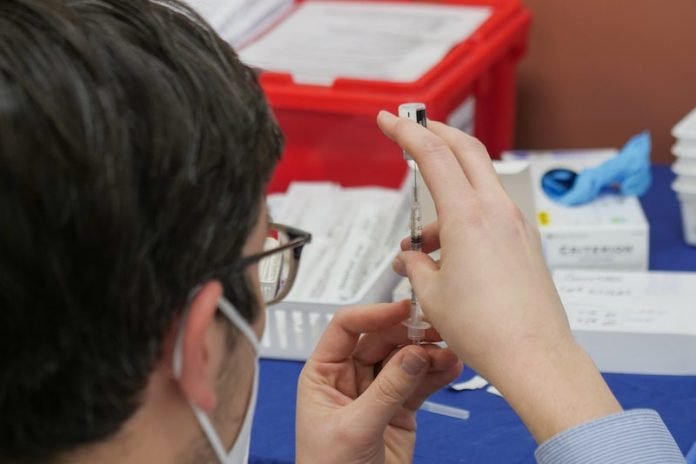
Studies suggest that up to 18% of patients who are hospitalized with COVID-19 have evidence of myocarditis, an inflammation of the middle layer of the heart wall.
Remember this is 18% of hospitalized patients, i.e. patients who by definition have a more severe form of infection.
There are some data to give us a guide as to how common myocarditis is in the whole population of patients who get COVID.
There was a study looking at younger patients and they estimated that the incidence was about 500 cases per million patients in the age group of 12-19 years. This equates to a percentage of 0.05.
There was another study that looked at 1597 athletes and they concluded that based on symptoms, the incidence of myocarditis was 0.31% and if you used MRI scanning then up to 2.3% of these patients had myocarditis.
In 40% of these patients, the myocarditis had completely resolved on repeat imaging within 4-10 weeks.
Can the vaccines cause myocarditis? There is some suggestion that the Pfizer and Moderna vaccines may be associated with a slightly higher incidence of myocarditis.
As these particular vaccines have been used extensively in the US and Israel most of the data comes from these countries.
In the USA by June 2021, 296 million doses of the mRNA vaccines have been given and there were 1226 reports of myocarditis after vaccination.
In those patients, the average age was 26 years and the time to onset was a median of 3 days after vaccination.
In Israel, over a 6 month period, there were 148 reports of myocarditis with about 5 million vaccinations. Again the incidence was higher in young males and usually after the second dose.
What is the outcome of vaccine-associated myocarditis? There was an analysis of the patients in the US and they found that 96% of these patients with myocarditis had to be hospitalized but fortunately there were no deaths.
However, there were in the European economic area 5 deaths were reported but in generally older patients with more comorbidities. The general consensus is that the prognosis is good.
But we need to study patients over a longer period of time to understand if there are any issues with regards to an increased incidence of heart failure or heart rhythm disorders.
The data should not dissuade anyone who is considering the vaccine to have it. In fact, it is estimated that the risks of developing myocarditis from COVID itself are about 5 times greater than from the vaccine.
However, if you develop symptoms of chest pain, breathlessness, or palpitations within 2 weeks of receiving the vaccine, then it is important to seek medical advice and have an ECG, blood tests for Troponin, and an echocardiogram.
This is not professional advice, please seek out a professional if you need help.
If you care about COVID, please read studies about which COVID vaccines elicits the strongest immune responses, and COVID-19 vaccine that could provide ‘border protection’ to the body.
For more information about health, please see recent studies about inexpensive heart drug that can help treat severe COVID-19, and results showing that green tea may protect your body as a vaccine.
Source: York Cardiology



